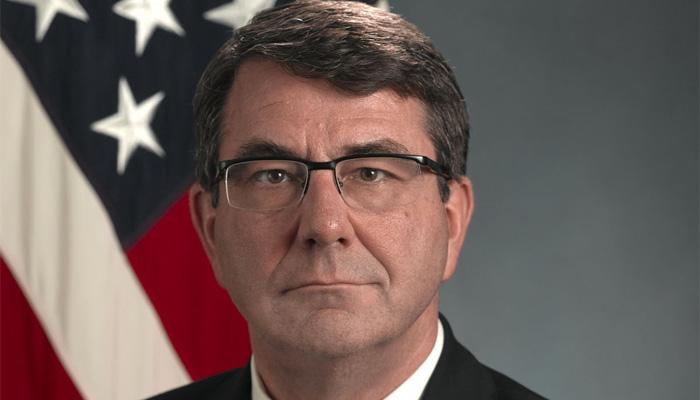Ashton Carter named new US defense chief, India-US ties likely to get a boost
Washington: President Barack Obama Friday named Ashton Carter, a former Pentagon second-in command, who once described India as destined to be America's security partner, as his new defense secretary in place of ousted Chuck Hagel.
Trending Photos
)
Washington: President Barack Obama Friday named Ashton Carter, a former Pentagon second-in command, who once described India as destined to be America's security partner, as his new defense secretary in place of ousted Chuck Hagel.
 Announcing the nomination of the Rhodes Scholar, with a doctorate in theoretical physics from Oxford University and a degree in medieval history from Yale, in the Roosevelt room of the White House, Obama described him as "an innovator".
Announcing the nomination of the Rhodes Scholar, with a doctorate in theoretical physics from Oxford University and a degree in medieval history from Yale, in the Roosevelt room of the White House, Obama described him as "an innovator".
Pentagon's former chief weapons buyer with a breadth of experience in the Pentagon and Capitol Hill combined "strategic perspective and technical know-how" and was well respected on both sides of the aisle, he said.
Carter,60, said he accepted Obama's offer because of the "bright opportunities" ahead and "If confirmed for this job, I pledge to you my most candid, strategic advice."
If confirmed by the Senate, Carter would be Obama's fourth Pentagon chief in his roughly six-year administration.
Hagel did not attend Friday's announcement, but released a statement saying he strongly supports the nomination.
Carter was not Obama's first choice. Twice passed over in the past, he emerged as the front runner after several candidates opted out.
These included Senator Jack Reed, a Rhode Island Democrat, Michele A. Flournoy, a former Pentagon under secretary and Jeh C. Johnson, the secretary of Homeland Security.
In his previous avatar as the deputy secretary of defense from October 2011 to December 2013, Carter is credited with enhancing India-US defence ties and pushing for easing restrictions on technology transfer to India.
He together with India's then National Security Advisor Shivshankar Menon were tasked to lead India-US Defence Trade and Technology Initiative (DTTI) envisaging technology transfer and co-production and co-development of defence equipment.
Shortly before stepping down in November last year, Carter recalled in an interview with the Defense News how when then Defense Secretary Leon Panetta "first set me on the mission of working with the Indians, we knew that India is destined to be a security partner of the United States, in the long-run".
"And we are building for that long-run and we are willing to work hard and take the time," he said noting: "We are two technical and military cultures that grew up on opposite sides of the fence during the Cold War."
In an article for Foreign Policy around the same time, Carter emphasised the defense department's decision to change its mindset regarding technology transfer to India from a culture of "presumptive no" to one of "presumptive yes".
Two months earlier on a September 2013 visit to India, he made an exclusive offer to India to co-develop the next-generation version of the Javelin anti-tank missile.
Analysts suggest that with his plate full in dealing with more pressing challenges ranging from the pullout from Afghanistan to the fight with the Islamic State in Iraq and Syria, he may not have as much time for India.
But he can certainly give a further push to the DTTI and expand on his vision of India as a long-term security partner.
With India-US ties re-energised, US is reported to have set aside $20 million for strategic cooperative science and technology projects with India.
Stay informed on all the latest news, real-time breaking news updates, and follow all the important headlines in india news and world News on Zee News.
Live Tv







)
)
)
)
)
)
)
)
)
)
